Text

Rating: 4
"We’ve all met those enviable individuals who appear to have a gift for drawing people in, who are captivating to listen to, who are enjoyable to be around. These people seem happy, and their cheerfulness rubs off on everyone around them. Although we may not be aware of it at the time, chances are that the reason we respond so positively to these individuals has a lot to do with the warm and inviting expressions on their faces, the way that they modulate their voices to heighten the emotional impact of a story, and how they lean toward us ever so slightly and nod intently when we speak. In so doing, they are letting us know that they see us, they like us, and they want a deeper connection with us, making it exceedingly easy for us to feel the same about them in return. And they do all this without putting it into words."
Raising a Socially Successful Child by Dr. Stephen Nowicki serves as a fantastic primer for parents eager to assist their children in honing nonverbal communication skills and recognizing when professional guidance may be beneficial. Dr. Nowicki adeptly guides readers through cases in various developmental stages, spanning from early childhood to adolescence, without imposing rigid definitions of what constitutes 'correct' behavior. Instead, he focuses on fostering connections and reducing social isolation among children. The book provides invaluable insights for parents navigating the complexities of their child's social world.
0 notes
Text

Rating: 3
"I want to linger here in the in-between, half-made, in some permanent adolescence, forever. I don't ever want to become my full self."
Interesting Facts about Space possesses an enchanting allure characteristic of Emily Austin's writing. Her voice is a captivating blend of darkness and informality, with a sense of quirky surrealism strangely grounded in reality, presents a unique perspective.
The narrative revolves around Enid, a neurodivergent, partially deaf lesbian employed at a space agency, whose life revolves around indulging in true crime podcasts, caring for her mentally ill mother, and going on twenty dates from online apps a week. Enid's past is shrouded in mystery, and her fears are deeply rooted, ranging from a phobia of blind men to paranoia about a potential intruder in her apartment.
Following the death of their father, who abandoned her and her mother early on, Enid reconnects with her half-sisters, forging new, weary relationships not knowing where she quite fits in. Throughout the novel, we watch as Enid struggles to develop relationships with others beyond the surface-- hooking up with other women but never really knowing if she is able to forge deeper connections. The lens at which we see the events unfold brings a captivating glimpse into her perception of the world.
Overall, I found the book to be a quick and easy read. From the cover and first couple of pages of the book, I was easily deceived by the informal presentation of the book with its actual dark undertones. Focused more on character development, the plot was a little difficult to follow, but Austin nevertheless conveyed Enid's perspective and mental state exceptionally well.
#book review#goodreads#fiction#literary fiction#interesting facts about space#lgbtq+#space#science#ableism#disability
0 notes
Text
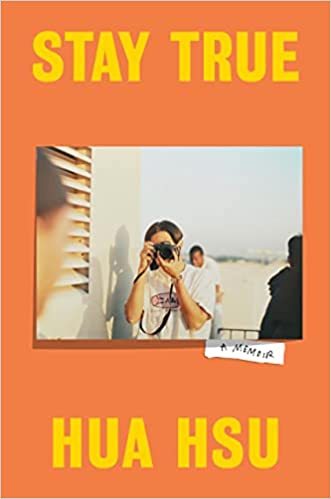
Rating: 4
“Friendship is about the willingness to know, rather than be known.”
Hua Hsu details a poignant, coming-of-age account of his college days at Berkeley and his friendship with Ken Ishida, who dies prematurely in a carjacking less than three years after they first meet. Although most of the memoir centers around his feelings and memories of Ken, it also elaborates on the everyday obstacles and intimacies of Asian American culture, family dynamics, coming to terms with individual identity, and trauma/therapy.
Hsu does a great job at conveying the ups and downs of relationships. No one is perfect, and there are undoubtedly times where the little things your friends do tick you off. Some of his bitterness towards Ken shines through in the book, and in Hua’s case, those feelings came and went at untimely intervals. He discusses the inner turmoil he experienced with his conflicting friendship with Ken, with the aftermath of Ken’s death where he wasn’t sure if they were truly close friends– a sentiment that some of his friends questioned years later. Hsu’s memoir is incredibly intimate and real and provokes a sense of fragility where what you believe is permanent is actually fleeting.
My only caveat with the book was the flow. It would cut off randomly at the ends of some chapters and transition to a totally different time and place in the next, ending the previous chapter with a cliffhanger that was never really resolved. It was difficult to follow, but everything in between made it worth the read.
Overall, Stay True is a wonderful memoir, and one I would recommend to all with its realism, sincerity, and testament to coming of age during times of trauma.
#hua hsu#hsu#pulitzer#goodreads#book review#book#books#reviews#review#asian american#AAPI#memoir#autobiography#biography#nonfiction#coming of age#college#trauma#therapy
0 notes
Text

Rating: 4
"And fuck it, I'll just say it: taking Athena's manuscript felt like reparations, payback for the things that Athena took from me."
Wowza. This is one hell of an audacious undertaking of a book . . . and I loved it.
Summary. In Yellowface, we follow June Hayward and her friendship with Athena Liu-- both authors but June a rookie trying to break into the industry and Athena acclaimed and successful. When Athena dies from a freak accident, June steals Athena's newly finished manuscript, edits it, and publishes it as her own under an Asian-ambiguous surname. After years making lowly wages, she's finally experiencing Athena's life of glory, medals, and fame. However, the turmoil she faces within and with the emerging evidence that what she's written isn't her own, her audacious success might be short-lived.
Thoughts. R.F. Kuang tackles a variety of difficult themes, but a lot of them are done superficially, especially given the book's span of only ~320 pages. I felt like Kuang had so much to say but not enough space to write them all in. From the horrors of the publishing industry, self-worth in the shadows of friends/peers, to privileged minorities such as Athena who make their name and wealth at the expense of the suffering of others, Kuang hits them all. I do wish some of the themes were expanded on further in the book, but given the constraints, I don't put it against her.
Kuang's depiction of June's mental spiral from stealing Athena's manuscript at a split second to her paranoia of Athena's ghost being reality that she dents her facade was beautiful and absolute perfection. Even though I cringed at June's actions, I couldn't bring myself to put the book down and devoured it in two sittings.
My only caveat with the book was the ending. I thought it was quite rushed, and the resolution of Candice being the one to become victorious to it all didn't do it for me, and her character from beginning to end seemed out of nowhere. I also wished there was more closure with Mrs. Liu instead.
Nevertheless, Yellowface lives up to the hype. It tackles niche topics for the layreader and a broader issue in the publishing community where before was rarely spotlighted. 4/5 stars.
0 notes
Text
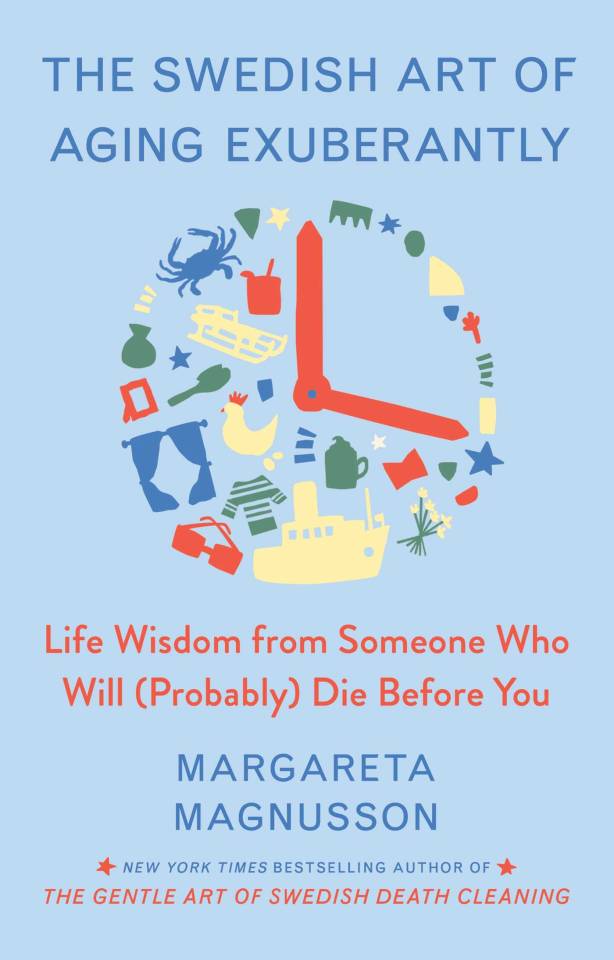
Rating: 5
Genre: nonfiction, memoir, self-help
"The idea is that we should not leave a mountain of crap behind for our loved ones to clean up when we die. Why would your family and friends want to take time out of their busy lives to clean up your mess when you clearly could have taken care of it yourself?"
To be less afraid of death, as it eventually comes for all of us, is a difficult concept to come to terms with. No matter how old or young, it can either be a constant thought in the back of your head or a wave of fear that bouts in spurts, but Magnusson's interpretation of how to approach death is refreshing, and her focus on new mindsets and daily discoveries rather than death itself is incredibly powerful.
"Sometimes I wonder which one of us will be the first to not answer."
Friendship. There are some friendships that come and go, but the ones that last, they're the people you can always call to rely on-- whether it's a call to rant about a mishap, to share good news, or just catch up. But I never consciously thought about how my friendships would transpire as we grew older. My closest friends are :always within and next to me-- I don't need to think abut things we did or said. Some people just become part of you. That feels comforting." Even now when I'm young, who knows what can happen?
"When you are my age, you will probably meet people who are scared to die. I have been to the hospital so many times and visited family who no longer can get out of bed or care for themselves that I think we should not be scared of death but of living too long. When death comes just hope it is quick. Take it from me, someone who lived through death, it does not have to be unpleasant at all."
Death. I believe that coming to terms with death is one of the greatest accomplishments one can do. If you accept that death exists and that it will eventually come unto you, life is all the more freeing. You can live life with no regrets. You can enjoy life in the present than the future. You can take on life more proactively to complete and enjoy it to your fullest. Your worldly perspective is more appreciative and self-actualizing, and you can engage the positives in your life while challenging the negatives with a growth mindset. Knowing that the end is coming is daunting, but the fact that it's coming will never change, so accepting that fate and accepting that you have no control over when that end appears is key to a fulfilling life.
"Once you have turned eighty, it's important to have the right sort of wrinkles. Even more important though, is to start laughing early enough to spend more time laughing than frowning. If your wrinkles point upward you will look happy instead of merely old."
Appearance. With aging, there's often a pressure to avoid appearing "old." Whether it's smoothing wrinkles with botox or dying graying hair, being old is sadly frowned upon. When the pressure to avoid these physical features begins as early as individuals in their twenties, a movement to accept one's aging features is a refreshing perspective. If getting botox or dying your hair makes you confident, by all means do so. However, if you don't want to but feel pressured to, by all means do so as well! To accept how you envision yourself to age is powerful, regardless of what that entails.
Magnusson's words of wisdom resonated deeply with me and are qualities I seek to incorporate into my own life. She is blunt, humorous, takes initiative, and embodies self-actualization that I can only dream to achieve.
#margareta magnusson#life#nonfiction#memoir#arc#netgalley#self-help#book#review#book review#goodreads#books
0 notes
Photo
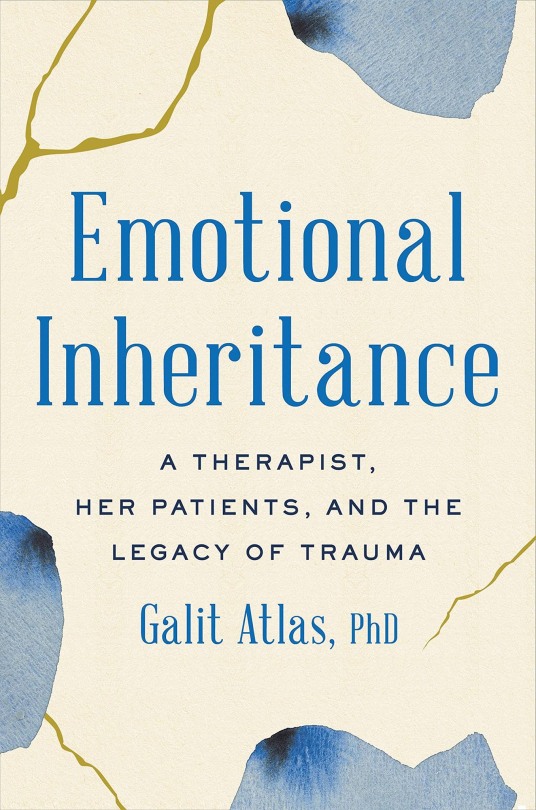
Rating: 5
Genre: nonfiction, psychology
"The secrets of the mind include not only our own life experiences but also those that we unknowingly carry with us: the memories, feelings, and traumas that we inherit from previous generations."
The capacity to love, to live life fully, and to achieve our dreams, is an ongoing dialogue in our search for emotional truths to tolerate pain and to mourn. In our journeys towards self-fulfillment, we must unpack our "emotional inheritance" in order to truly transform our futures.
The scars we inherit from our forefathers leave vacillating, indelible marks on how we view the world, our pasts, and our futures. This awareness underlies the unexamined lives of previous generations and how it shapes our lives and the lives of the following generations. If this book has taught me anything, it's that our ancestors are our future in the making. When each generation hears the stories of the generations before, we recognize how that history shapes their present lives, and they identify the ways in which the past dictates the present and future.
Breaking the intergenerational cycle of suffering requires self-initiation to address our genetic heritage as both fate and a catalyst for change. Where scientists previously believed that environmental factors had little effect on genetic legacy, the narrative has since shifted with the rising field of epigenetics, which provides an alternative theory on how nature and nurture come into play. Genes have "memories" that can be passed from one generation to the next, and this tangible trauma can have long-lasting impacts for decades.
Future generations not only carry the despair of the past but also hope for the future as their mere existence is evidence that their family has prevailed and that a sustainable future is possible. To change the trajectory of the past takes great courage and pain, but once achieved, the fruits of emotional liberation and future redemption are limitless, and the healing from which is achieved diminishes our pain and forges a path of love for self and others that was never fully realized before.
This book might just be my book of the year. It has been a long while since I have read something that I have resonated so much with, cried so much over, and ached for days after reading. People are fickle beings, but our resilience is what allows us to endure through thick and thin, albeit the traumas of our past or our own. There is ample food for thought upon each re-read of this wonderful piece on the legacy of trauma, and I cannot recommend this book enough for all to read.
"In the end, we come to realize that it is the unexamined lives of others that we ourselves end up living."
#galit atlas#emotional inheritance#trauma#legacy#goodreads#book review#review#therapy#nonfiction#favorites#netgalley#arc
3 notes
·
View notes
Photo

Rating: 5
Genre: nonfiction, sociology
"One of the most important things to say about the gender data gap is that it is not generally malicious, or even deliberate. Quite the opposite. It is simply the product of a way of thinking that has been around for millennia and is therefore a kind of not thinking. A double not thinking, even: men go without saying, and women don't get said at all. Because when we say human, on the whole, we mean man."
Coming into this book, I was afraid that it would mostly be generalizations with a few random statistics thrown in here and there, but I was pleasantly amazed.
I was also angry, and rightfully so given the myriad of evidence that so many of today's male-oriented problems are killing women, and the solutions given are equally male-oriented that they make the problems worse. For example, more women than men died in the 2004 tsunami in Indonesia. Why? Women are more likely than men to care for children and the elderly. They are more likely to be in remote locations for work where warning signals are unreachable. They are less likely to be equipped with the ability to swim, and even should they be able to make it out alive, men are more likely to undertake a crime of opportunity-- rape, assault, murder. Urban planning is often made by men without the intention of obscuring women, and this is seen even on a smaller scale. It took a Google executive to become pregnant for her to suggest implementing closer parking spots for pregnant workers. It took an individual in a position of power to experience it in order to suggest and make receptable change (if at all).
What angered me even more was the aspect of public transport. Women are more likely to use public transport than men. If there is a car in a household, it is implicit that the man will use the car and the woman the bus. Yet, public transport systems were designed by men without the input of women. In Southern America, bus stops placed even two blocks closer to a "safer" neighborhood can be the difference between life and death. Women are more afraid of the to and fro than their actual workplace, as gang violence often leads to kidnapping and rape. On the topic of transportation, women are exponentially more likely to "trip-chain" than their male counterparts, expected to plan sub-trips involving driving home from work, dropping a child off at an extracurricular activity, going grocery shopping, picking up their child from said activity, and then returning home. Men are not expected to do the same. Work, social, and home lives are so male-oriented that the female perspective goes overlooked.
And research? The fact that women are commonly excluded from clinical trials yet given the same medicinal protocols is staggering. Biological men don't get pregnant, they don't have fluctuating hormones, they thus don't exhibit the same symptomatology or physiological ramifications as women might have. Yet, the decision to increase female participation in research remains unprioritized, and this finding might be attributed to the fact that most individuals on IRB panels are men. The ability to recognize such a discrepancy is amiss. The facts and data are already here, but the catalyst to change the norm is up in the air.
Empowering women and engaging female leadership starts with this change, and after reading this book, it is impossible not to see every little nuance all around us. Criado-Perez has truly gone above and beyond in her research and what could have been a didactic-heavy book was incredibly captivating to the lay-reader.
#carolina criado perez#criado perez#invisible women#nonfiction#sociology#book review#goodreads#data science#feminism#bias#gender
16 notes
·
View notes
Photo
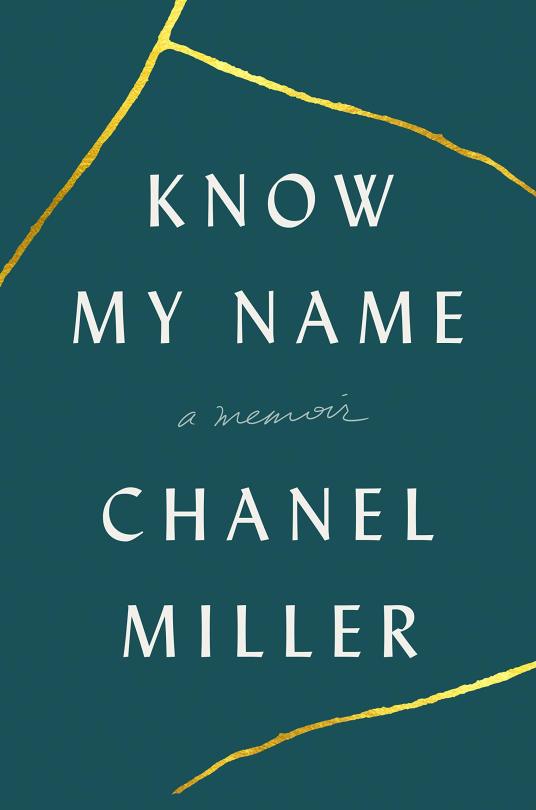
Rating: 5
Genre: memoir, nonfiction
"I decided right then it was not true, none of it was real, because I, Chanel, was sitting at the office, and the body being publicly taken apart did not belong to me. I suppose this was when Emily Doe was born, me but not me at all, and suddenly I hated her, I did not want this, her nakedness, her pain. It was Emily, all of this was Emily."
There are no words to describe the rawness and vulnerability that embodies Know My Name. It is singlehandedly the most beautiful book I have ever read, and I am heartbroken that it had to be about this.
Where she was previously only known as Emily Doe through the tumultuous and high profile People v. Turner case, Chanel Miller redefines herself in her own words. She emphasizes the failures of the American justice system that minimize punishment to the white and wealthy, that insist that victims of sexual assault are dependent, weak, and seek revenge for "simple" mistakes a young college kid made while drunk. The frustrations conveyed in the linearity of her narrative from before the night in question to the political polarity of 2017 were emotionally evoking and difficult to tear from the page. In her own words, she's the lighthouse for all women present and future to reclaim their self-worth, value, and respect. She has touched countless lives with her story, her elegant portrayal of her story speaks volumes to her character and approach to catalyzing discussion of rape and assault in America.
0 notes
Photo

Rating: 5
Genre: nonfiction, politics, social justice
"There are strains of sadness woven into this story, but this is not an account of grief. These kids chose a story of hope."
Dave Cullen never fails to bring unbiased background and information to an issue and movement so entrenched with bias. In contrast from Columbine, Parkland: Birth of a Movement focuses more so on the victims and the change they have since evoked rather than the perpetrator(s) themselves. In fact, the book's perpetrator is not even named in the latter. This shift in focus emphasizes the public's outlook on school shootings in the present in comparison to its predecessor in 1999, and Cullen exceeds expectation with his execution.
Media. It swings both ways. Amateur and professional. "Amateur" being the students who lived through the tragedy and documented in real-time and post thereafter the horrors they faced, the psychological aftermath, and the revitalization of the movement they created. "Professional" being the news stations such as Fox News and CNN, who covered the story with the chief goal being polar juxtaposition between one another to raise ratings and revenue. The one that carries more weight is not seen in either but the audiences they collect. Amateur media consumed by younger generations and therefore our future, and professional media consumed by older generations (or "Adult America" per Cullen) and therefore hold power over legislation to be passed in the near future. Both carry weight to their respective audiences, but change can only happen when both work together, and Cullen captures this idea incredibly well.
Mental health. I admire Cullen's candor regarding his own mental health, particularly PTSD. Columbine left him with much to say and not enough time to reel, and Parkland, like many other mass shootings in between, further tormented the haunting memories of the past. Nevertheless, his forthrightness allows the students he interacted with at Marjory Douglas High School to seek out their own psychological solace, whether that be through professional therapy or through individual outlets of emotion. He welcomed them with open arms and offered himself as a resource for their campaigns and their recovery from the trauma they faced. Gun violence, especially gun violence against children, is a uniquely American anomaly, and the change to reverse our mindsets on how we approach self-defense and the Second Amendment at large is a force waiting to be reckoned with.
Cullen cements a polarized story into an evidence-backed account of the events that have since unfurled from February 14, 2018. He has provided perspective to a movement too often associated towards the left and has created an alternative platform for discussion from the amazing work the students through March for Our Lives have undertaken. To dismiss this background (of both sides) on the sole basis of the topic would be a disservice for future generations and beyond, and Parkland is undoubtedly a story that will inspire readers that anyone can make a difference regardless of what odds for which they are against.
Jackie felt like she was passing the torch, but she was really lighting activist flames. "March for Our Lives does not belong to us anymore," Jackie said. It belongs to every kid in America who is ready to heed the call.
#parkland#dave cullen#cullen#nonfiction#march for our lives#MFOL#sociology#politics#history#social movement#social justic#journalism#x gonzalez#emma gonzalez#david hogg#cameron kasky#jaclyn corin#never again msd#never again#florida
1 note
·
View note
Photo
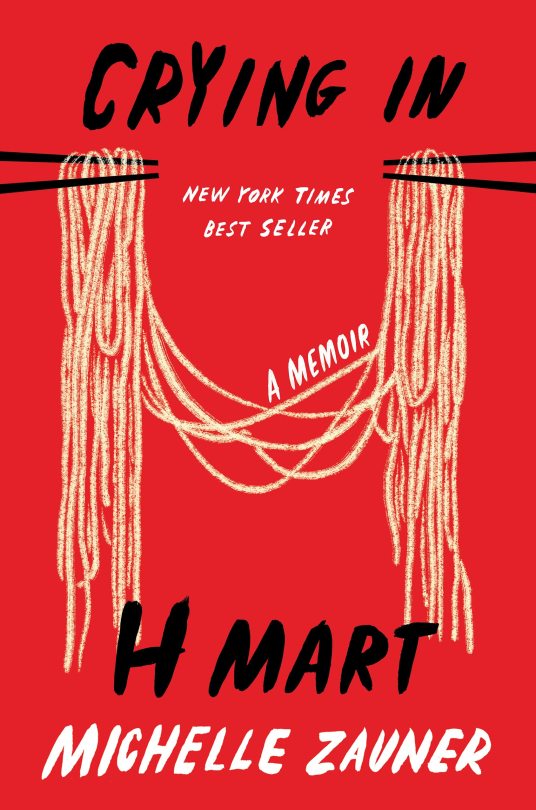
Rating: 5
Recommended for: everyone
Genre: memoir, nonfiction
"Food was how my mother expressed her love. No matter how critical or cruel she could seem-- constantly pushing me to meet her intractable expectations-- I could always feel her affection radiating from the lunches she packed and the meals she prepared for me just the way I liked them. I can hardly speak Korean, but in H Mart it feels like I'm fluent."
I think Crying in H Mart might just be my book of the year. Michelle Zauner hit all the marks of my childhood-- my relationship with my mother, my grandmother, my ambitions as a daughter of Asian immigrants, and more.
The book is raw but entwined with casual flair. It felt like I was hearing stories from a friend than reading literature, and I was easily immersed in her story, her regrets, and her failures. I felt every emotion and empathized every happy and sad turn. I was laughing at how similar our childhoods, specifically our family was.
"Stop crying! Save your tears for when your mother dies."
"My mother was always trying to shape me into the most perfect version of myself. When I was an infant, she pinched my nose because she was worried it was too flat.”
It's the little things in culmination that make me pause and think of all the little actions and sacrifices my own mother has made in her desire to see me happy and successful. Nothing can ever equate to her presence in my life, and Zauner puts the same sentiment to words perfectly. It's not until you're older than you begin to understand these sacrifices and decisions mothers make during your childhood, and the regret Zauner conveys once she finally does understand begets pause to each and every reader:
"I would radiate joy and positivity and it would cure her. I would wear whatever she wanted, complete every chore without protest. I would learn to cook for her-- all the things she loved to eat, and I would singlehandedly keep her from withering away. I would repay her for all the debts I'd accrued. I would be everything she ever needed. I would make her sorry for ever not wanting me to be there. I would be the perfect daughter."
I was somewhat surprised how little H Mart played a role in the book beyond just allusion, but I was content with how the story progressed. Overall, I would recommend this book to every child of Asian immigrants and beyond. Zauner's storytelling is lighthearted yet heartwrenching, and this book stands testament to that.
#michelle zauner#zauner#crying in hmart#hmart#korean#asian#immigrant#america#nonfiction#food#asia#korea#vietnam#thailand#journey#cancer#medical#medicine#first POV#penguin house#goodreads#book review#joys-bookshelf#japanese breakfast
1 note
·
View note
Photo

Rating: 4
Recommended for: fans of Julia Quinn, Tessa Dare, and Elizabeth Hoyt
Genre: adult, historical romance
"'It's not a love match. It's a marriage of convenience, and there's not enough warmth between us to light a birthday candle. Get on with it, if you please. Neither of us has had a proper sleep in two days.'"
Devil in Winter follow Evie Jenner, the daughter of a dying gambling house owner, who seeks to retain her inheritance by marrying the most infamous scoundrel in London-- Lord Sebastian St. Vincent. She was originally set to marry her cousin, who had intended to cast her off once receiving her dowry and more, but her escapade to elope Sebastian deterred her relatives from doing so. Both she and Sebastian don't intend to fall in love, but when they find themselves falling, Evie strikes him a bargain in order to continue their relationship-- remain celibate for three months and she will allow him into her bed. But when enemies are out for Evie's life, they both find themselves in a more perilous fate than ever before.
This is my first book of Lisa Kleypas, and I must say that I'm pleasantly surprised. This was a fun read, and I found Evie's and Sebastian's banter an absolute delight throughout the book. However, I had a few caveats, the first being that Evie's stutter and shyness was too quickly resolved and no development occurred in that regard and the second being that Bullard's antagonism was quite cliché and predictable. Thirdly, Sebastian's willingness from rake to loyal husband was quite abrupt and had little transition, which I found somewhat unpalatable to the plot's progression. Nevertheless, the book is a good read overall, and I would recommend it to fans of marriages of convenience and historical romance at large.
#lisa kleypas#kleypas#devil in winter#wallflower#evie#sebastian#st vincent#historical#historical romance#romance#adult#wallflowers#goodreads#book review#review#rake#viscount#duke
0 notes
Photo
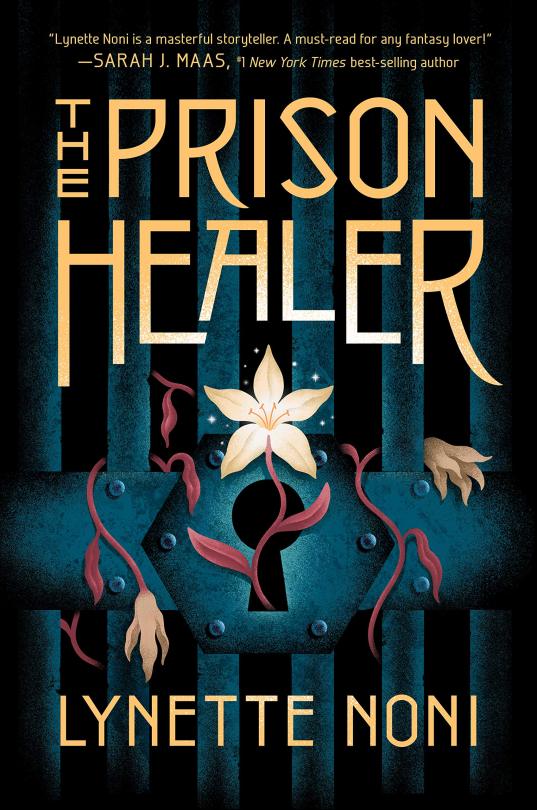
Rating: 3
Recommended for: fans of Fable and Air Awakens
Genre: fantasy, young adult
Stay alive.
Don't let her die.
We are coming.
The Prison Healer follows Kiva Meridan, a prisoner at the notorious Zalindov since childhood, who now works as the prison's healer. When the Rebel Queen is captured and sentenced to a Trial by Ordeal, Kiva volunteers to take her place. She then finds herself wound with interest by the enemy crown. The trials she faces are bound for immediate failure, and should she fail, she and the queen she's taken place of will both be executed.
My expectations for this book flew a little too high. The book was a fun read, but not one I was quite invested in. The twists weren't as surprising or enthralling as I had anticipated, and Kiva herself fell a little flat to me. Information like her volunteering in place of the rebel queen would appear spontaneously, and each conflict presented was resolved too cleanly. There was a clear lack of development in both characters and plot. Back to Kiva, she was lackluster in her responses, her confidence, and her mission in life and constantly relied on others to complete her tasks. She never took initiative for her actions and instead depended on external forces to make her move. Therefore, I believe that this book and series would better fit the younger side of the YA spectrum. The writing isn't spectacular, but it's good enough to read through and be relatively interested.
#lynetter noni#noni#the prison healer#kiva#kiva meridan#meridan#jaren#tripp#fantasy#young adult#YALit#magic#fiction#goodreads#book review#review#joys-bookshelf
2 notes
·
View notes
Photo
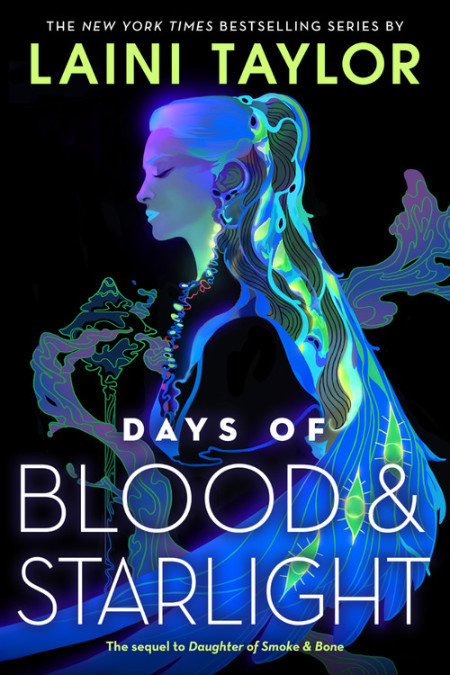
Rating: 5
Recommended for: Everyone. This series is to die for.
Genre: angst, fantasy, paranormal, romance, young adult
"Once upon a time, an angel and a devil held a wishbone between them. And its snap split the world in two."
Days of Blood & Starlight picks up from Daughter of Smoke & Bone with Karou leaving Akiva upon discovering his blinded betrayal. She turns to the fallen Razgut to deliver her to her original world, where she joins forces with the family who had beheaded her in her previous life. Under Thiago's authority, she assumes Brimstone's role in resurrecting lost chimaera souls from Seraphim slayings, and for better or for worse, she encounters Akiva throughout her journey of national redemption. But twists and turns thorn her path, and she finds herself doing exactly what she swore she'd never do.
This book was everything. I was initially scared because I wasn't quite invested in the book as I would have liked, but towards the second half, I couldn't put it down and sobbed like a baby. Laini Taylor is a master manipulator of emotions and delivers her story exceptionally. As stated earlier, my only caveat was that I wasn't as invested in Days of Blood & Starlight as I was in its predecessor Daughter of Smoke & Bone, and so it took me over a month of mulling to finally finish it. In the first book, Karou and Akiva together were powerful characters, and I found myself drawn to them throughout the book. But with the second, I found that, separated, the characters were somewhat lacking in the same vigor presented in the first book. Don't get me wrong, it's still a good book, just not as captivating as the first, and I guess I was a little disappointed and found it more difficult to read than the first.
That being said, Days of Blood & Starlight is a stellar read, and I recommend it to all fans of fantasy and beyond.
#days of blood and starlight#taylor#laini#laini taylor#daughter of smoke and bone#dreams of gods and monsters#akiva#karou#madrigal#brimstone#issa#seraphim#demons#chimaera#fantasy#romance#angst#young adult#YA Lit#YA#NYT#NYT bestseller#bestseller#goodreads#book review#review
16 notes
·
View notes
Photo
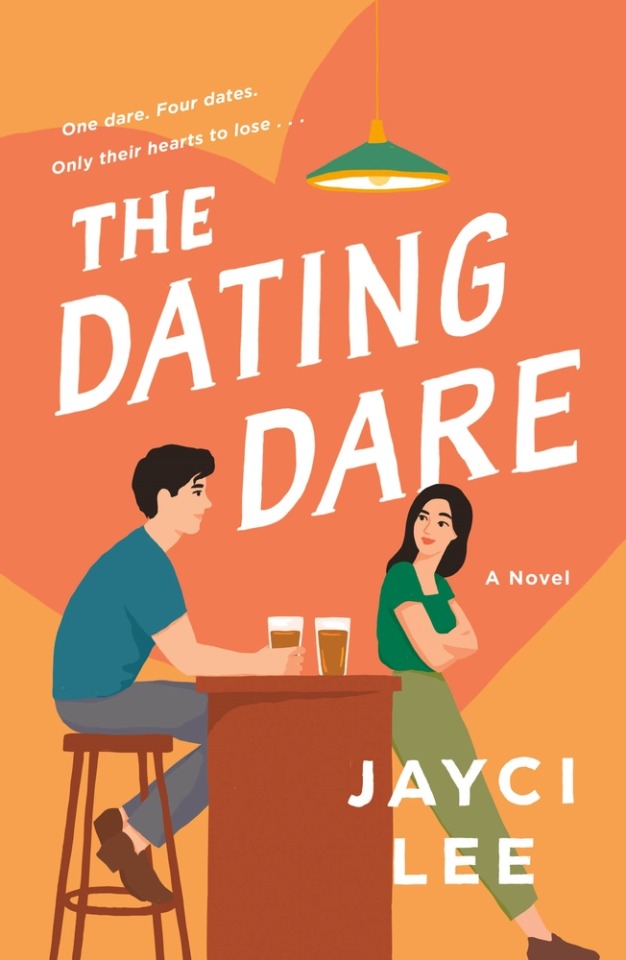
Rating: 4
Recommended for: fans of Sally Thorne, Jasmine Guillory, and Emily Henry
Genre: chick-lit, contemporary, romance, women’s fiction
Then a brilliant idea lit up his mind. Dude, you're a fucking genius. If it worked, he might get his spring fling with Tara after all. Reining in his excitement, he said casually, "Why don't I suggest a game? Do you think you can handle some truth or dare?"
"Bring. It. On."
The Dating Dare follows Tara Park as she encounters her best friend's brother-in-law--Seth-- at her wedding. He's sweet, a famed fashion photographer who's setting sail for Paris in a few weeks, but also a player. On a game of truth or dare, Seth dares Tara to go out on four dates without falling in love with him. She's tempted to decline, but what harm could a month of fun really do? She accepts, and together, they go on adventures, learn more about each other, and fall dangerously close to crossing the line they've set.
This book is a fun, entertaining rom-com that does not fail to put a smile on your face. The characters are innocently hilarious, and the plot follows the typical chick-lit formula for success. My only caveat with the book was how quick the attraction developed between Seth and Tara and their relative lack of development relationship-wise. I wouldn't exactly call the characters immature, but they were very innocent in their presentation. Nevertheless, it fit the fun frivolity the book introduced at large, and I'd recommend the book to all fans of rom-coms and the chick-lit genre.
#the dating dare#jayci lee#rom com#romance#comedy#chick lit#a sweet mess#sequel#goodreads#book review#review#netgalley#arc#advanced copy#tara park#seth kim
1 note
·
View note
Photo
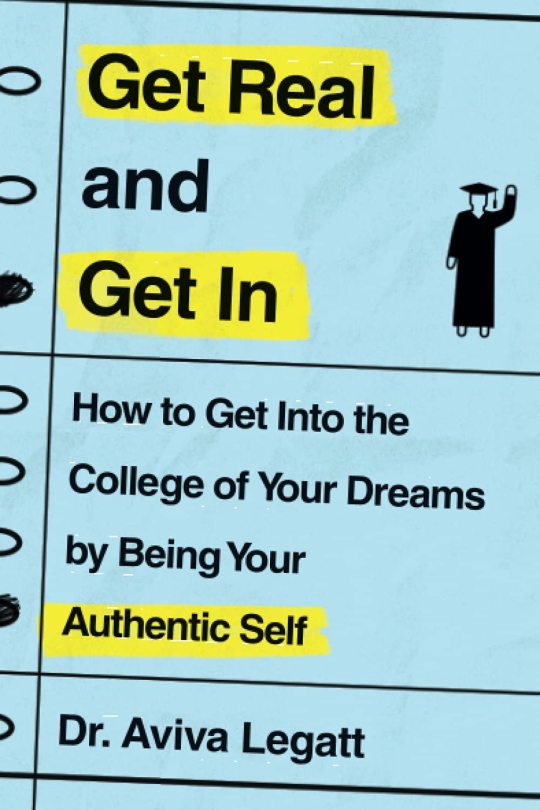
Rating: 4
Recommended for: high school students, parents/family of high school students
Genre: education, nonfiction
"Our stress and drive to achieve is not our fault. From the time we're small, we're taught that college is competitive, important and waaaaaay expensive. If we let them, the financial and emotional pressures can easily overwhelm us."
Dr. Aviva Legatt is a former UPenn Wharton admissions officer who writes a powerful narrative on what it's like to apply to college, the emotional and social pressures to achieve results, and more. Her background as a student in a high-achieving high school and applying as one of the "lackluster" students in comparison to her peers also adds insight to how the pressures of the college process have no indication on how well you will succeed later on in life.
Legatt also offers exercises in each part of the book to help the reader expand what commonly is a narrow-minded view of their future. Too often are students' futures dictated by their parents, and the author certainly proves an effort to allow the student to widen their horizons. She further provides case scenarios of various successful individuals throughout the past few decades (i.e. NYT author Adam Grant, her personal clients) as evidence on how they transformed their applications into the best representation of themselves-- remaining authentic to themselves on paper.
Despite all these great points, what I liked best out of everything in her book was the few pages she dedicated in selecting the perfect college. Where many students prioritize prestige, she offers insight on other aspects of higher education that often remain overlooked by applicants such as a college's culture/character, their strategic goals for the upcoming years, how they structure their curriculum, and more. These parts of the application process are important, and Dr. Legatt highlights them here clearly.
#aviva legatt#legatt#get real and get in#college#authenticity#admissions#admission#admissions process#university#application#high school#HS#student#UPenn#Wharton#pressure#social#emotional#stress#adam grant#NYT#netgalley#book review#arc#review#goodreads
0 notes
Photo

Rating: 5
Recommended for: fans of Alex Michaelides, suspense, and thrillers
Genre: adult, contemporary, romantic thriller, suspense
"Things aren't right in this house, and until he mistrusts that woman upstairs as much as I do, I have a feeling something else is going to happen. The other shoe is going to drop.
After all, this is a house full of Chronics. The next tragedy is already long overdue."
Wow, this was a rollercoaster, and it was definitely a sharp contrast from the heartwrenching novels Hoover generally writes.
In Verity, we follow three central characters-- 1) Verity Crawford, a famous, successful author who has recently become both mentally and physically disabled that she can no longer continue her life's work, 2) Jeremy Crawford, Verity's loving husband and former realtor who currently serves as a stay-at-home dad for his remaining son Crew, and 3) Lowen Ashleigh, a struggling author who is presented with an offer of a lifetime: half-a-million dollars to complete Verity's remaining three books. To do so, Lowen resides at the Crawford home to review Verity's files over the years, and she stumbles upon an unmarked manuscript shoved in the bottom of a drawer. Curiosity killed the cat, and Lowen finds herself immersed in Verity's psychopathic narrative of how she met Jeremy and to the births of her children and the deaths of her twin daughters. Nothing is as it seems, and Lowen finds herself stuck in more trouble than it's worth . . . or is it?
Hoover is stellar at writing complex, morally-gray characters who are faced with devastating life decisions. She's a master manipulator of emotions, and it's evident through Verity's character. It's impossible to separate truth from fiction, and Hoover leaves it up to the reader to determine who is right from wrong. But it's incredibly difficult. Each character has credible motivations behind their actions, but cumulatively, it's difficult to judge them in a clear-cut fashion.
A few warnings. Do not read this at night. I am so, so glad I heeded others' advice to read this during daylight and know that I would have suffocated under the covers had it been otherwise. Secondly, it's best to go in blind. Like Hoover's other work It Ends with Us, her synopses never do her work justice, and an open mind leads to a far thrilling reading experience.
#colleen hoover#hoover#verity#verity crawford#jeremy crawford#lowen#lowen ashleigh#crew#chastin#harper#suspense#thriller#romance#romantic thriller#plot twist#mystery#author#book review#goodreads#review#adult#dark#fiction#michaelides
1 note
·
View note
Photo
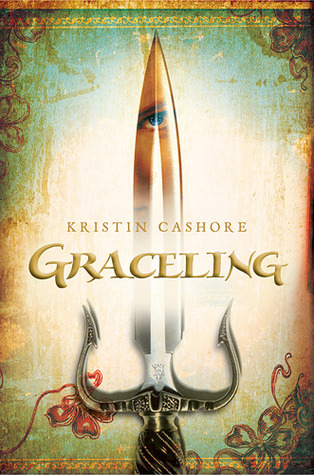
Rating: 5
Re-Read Factor: Yes
Genre: fantasy, young adult
"When a monster stopped behaving like a monster, did it stop being a monster? Did it become something else?"
Where other children are "graced" with speaking backwards or great eyesight, Katsa is graced with great killing ability. Despite her altruistic inclinations, her service as King Randa's spy and assassin has led her to re-examine how she wants to live her life. She doesn't want to marry some lord or bear his children. She wants to be free-- free to make her own decision . . . and free of her haunting conscience with each death she signs off. When she crosses paths with Prince Po during one of her missions, she's thrust into a thunderous new world sowed with betrayal and reaped with death and suffering. As she journeys across the land, she finds herself before a wicked king whose grace spells everyone with lies . . . and a princess who means to escape his insanity.
This book was everything and more. I was utterly amazed that this book was Cashore's debut novel. It was intricately woven with twists and turns, and the worldbuilding was beyond stellar. She redefines what it means to be true to oneself and how to identify and build ones weakness in relationship with others. She has created a story unlike any other and encapsulates themes unspoken in novels of the same vein.
Katsa. Some might argue that Katsa is a Mary Sue, but I beg to differ. Her Grace is powerful, but its actual essence differs from what the reader is first presented with and what it is embodies a baser identity. I found it quite clever of Cashore to turn Katsa's initial Grace into something different, and Katsa's character development is no different. Her life in the Middluns is sheltered and a life as an assassin is all she has ever known. But she contrasts her inhumanity as a killer with her altruistic work as part of the Council, and she was more than willing to leave her life behind to be someone more and to help others in need. Yet, she's consistent with her core values-- to never marry and to never bear children, and I am glad Cashore made her to be a character who did not change her viewpoints because she fell in love.
Po. I sometimes found him to be too good to be true, but he was a wonderful supporting character in contrast to Katsa's boldness. I was completely blindsided by what the true meaning behind his ring meant when it was revealed halfway through the book and was in awe by the truth of his injuries at the hand of the King Leck. His Grace so powerful that it seemed like a disability but turned into what allowed him to continue life despite his injuries. Cashore wove his sacrifices so complexly, the reader is easily able to empathize with his sorrows and joys without barriers, and I cannot commend her enough.
Bitterblue. For such a young girl who was abused by her father and more, she was incredibly brave, and one might argue a little too brave to be true, but I loved her nevertheless. She was charming and contrasted Katsa's unfamilial tendencies. She adapted well to adversity, and I cannot wait to read what she has to offer in the third installment of the series as the newly crowned Queen of Monsea.
King Leck of Monsea. As an antagonist, I found it a little predictable at how he was able to reach Katsa and Bitterblue towards the end. Regardless, the buildup towards the final scene of his defeat was thrilling and had me on edge throughout the book. The contrast between his facade and true nature was well-developed, especially in relation to the townspeople Katsa and co. encountered throughout their journey. It made his reach all the more intense and formidable.
Representation. Graceling is the first book I've encountered where the main character has chosen not to marry nor bear children for present or for future. Katsa is firm in her belief and does not fence-sit back and forth to confuse her lovers. When Giddon proposes to her on the premise to save her life, she states said reasons why she will not marry him, and his immediate response is that she is too young and that she will change her mind in the future. If you are old enough to know that you want to have children then you are equally able to choose not to have children. Children are a great responsibility, but having them is treated like a play-by-ear basis in comparison to other choices in life like career paths, retirement trajectories, and more. I admire Kristin Cashore for her bravery to write such a notion in a mainstream novel during the time that it was written.
I cannot commend Cashore enough at how she wove the story. It has topped the list as my favorite read of the year, and I'm excited to read the following installments of the series.
#favorites#kristin cashore#cashore#graceling#graceling realm#realm#katsa#po#prince po#bitterblue#fire#leck#monsea#middluns#grace#survival#aura#skye#high fantasy#fantasy#romance#young adult#YA#YAlit#randa#tealiff#winterkeep#giddon#liedon
17 notes
·
View notes